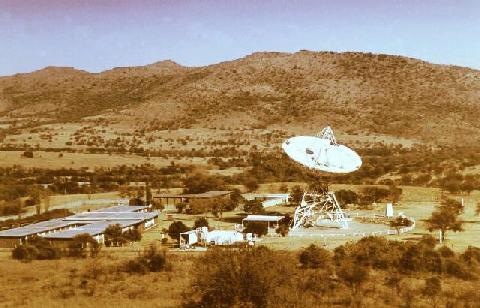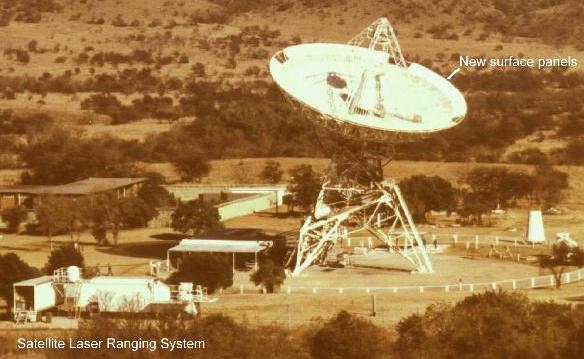

Click on the image for a large version (117KB).

The picture below shows the changes in more detail. Click on the image for a large (110KB) version.

The satellite laser ranger was installed at Hartebeesthoek in May-June 2000. The first laser pulses were fired on 13 July 2000, during the course of testing the system. When operational, the SLR will be used to track special satellites orbiting the Earth that are fitted with laser retro-reflectors. The measurements from the world-wide network of laser rangers enables the orbits of the satellites to be determined very accurately, and in turn the position of each laser ranger to be monitored. At Hartbeesthoek this can then be compared to the positions derived from geodetic VLBI experiments and from the GPS system.
For more pictures and information on the Satellite Laser Ranger click here.
The new solid surface panels can be identified easily in the photographs as they are much brighter than the old panels, which have 1-cm diameter perforations in the surface. The new antenna surface panels are being built onto the old backing frames removed from the telescope, with extra ribs to provide greater rigidity. The mean surface tolerance of the individual panels is currently averaging 125 microns, which is well within specification. The aim of the upgrade is to enable the telescope to be operated at frequencies well above its current limit of 12.5 GHz. The panel production rate is currently at six panels every ten days, and this should be cut to six panels every nine days for the next batch.
For more pictures and information on the production on the new solid surface panels click here.